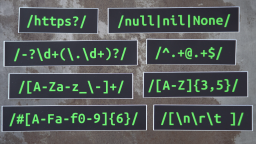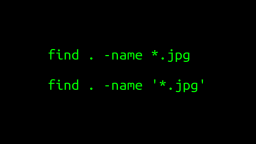Intro To 'fmt' Command In Linux
2023-06-08 - By Robert Elder
I use the 'fmt' command to format the spaces and lines in text files:
echo "The quick brown fox." | fmt -u
The quick brown fox.
Default Behaviour
Here, I have a document called 'gnu_linux.txt' that contains some very important information:
I'd just like to interject for a moment. What you're referring to as Linux, is in fact, GNU/Linux, or as I've recently taken to calling it, GNU plus Linux. Linux is not an operating system unto itself, but rather another free component of a fully functioning GNU system made useful by the GNU corelibs, shell utilities and vital system components comprising a full OS as defined by POSIX.
Many computer users run a modified version of the GNU system every day, without realizing it. Through a peculiar turn of events, the version of GNU which is widely used today is often called "Linux", and many of its users are not aware that it is basically the GNU system, developed by the GNU Project.
There really is a Linux, and these people are using it, but it is just a part of the system they use. Linux is the kernel: the program in the system that allocates the machine's resources to the other programs that you run. The kernel is an essential part of an operating system, but useless by itself; it can only function in the context of a complete operating system. Linux is normally used in combination with the GNU operating system: the whole system is basically GNU with Linux added, or GNU/Linux. All the so-called "Linux" distributions are really distributions of GNU/Linux.
This file contains lines that are way too long. I can pipe this text into the 'fmt' command and the lines will be formatted to a maximum width of 75 columns:
cat gnu_linux.txt | fmt
I'd just like to interject for a moment.
What you're referring to as Linux, is in fact,
GNU/Linux, or as I've recently taken to calling
it, GNU plus Linux. Linux is not an operating
system unto itself, but rather another free component
of a fully functioning GNU system made useful
by the GNU corelibs, shell utilities and vital
system components comprising a full OS as defined
by POSIX.
Many computer users run a modified version of
the GNU system every day, without realizing it.
Through a peculiar turn of events, the version of
GNU which is widely used today is often called
"Linux", and many of its users are not aware
that it is basically the GNU system, developed
by the GNU Project.
There really is a Linux, and these people are
using it, but it is just a part of the
system they use. Linux is the kernel: the
program in the system that allocates the machine's
resources to the other programs that you run.
The kernel is an essential part of an operating
system, but useless by itself; it can only
function in the context of a complete operating
system. Linux is normally used in combination
with the GNU operating system: the whole system
is basically GNU with Linux added, or GNU/Linux.
All the so-called "Linux" distributions are really
distributions of GNU/Linux.
Formatting Column Widths
I can also specify a different maximum column width like 60 using the '-w' flag like this:
cat gnu_linux.txt | fmt -w 60
I'd just like to interject for a
moment. What you're referring to as
Linux, is in fact, GNU/Linux, or as
I've recently taken to calling it, GNU
plus Linux. Linux is not an operating
system unto itself, but rather another
free component of a fully functioning GNU
system made useful by the GNU corelibs,
shell utilities and vital system components
comprising a full OS as defined by
POSIX.
Many computer users run a modified
version of the GNU system every day,
without realizing it. Through a peculiar
turn of events, the version of GNU
which is widely used today is often
called "Linux", and many of its users
are not aware that it is basically the
GNU system, developed by the GNU Project.
There really is a Linux, and these
people are using it, but it is
just a part of the system they use.
Linux is the kernel: the program in
the system that allocates the machine's
resources to the other programs that you
run. The kernel is an essential part
of an operating system, but useless by
itself; it can only function in the
context of a complete operating system.
Linux is normally used in combination
with the GNU operating system: the whole
system is basically GNU with Linux added,
or GNU/Linux. All the so-called "Linux"
distributions are really distributions of
GNU/Linux.
Collapse Whitespace
You can also use the '-u' flag to enforce uniform spacing.
cat gnu_linux.txt | fmt -w 60 -u
I'd just like to interject for a moment. What you're
referring to as Linux, is in fact, GNU/Linux, or as I've
recently taken to calling it, GNU plus Linux. Linux is
not an operating system unto itself, but rather another
free component of a fully functioning GNU system made
useful by the GNU corelibs, shell utilities and vital
system components comprising a full OS as defined by POSIX.
Many computer users run a modified version of the GNU
system every day, without realizing it. Through a peculiar
turn of events, the version of GNU which is widely used
today is often called "Linux", and many of its users are
not aware that it is basically the GNU system, developed
by the GNU Project.
There really is a Linux, and these people are using it,
but it is just a part of the system they use. Linux is
the kernel: the program in the system that allocates the
machine's resources to the other programs that you run.
The kernel is an essential part of an operating system,
but useless by itself; it can only function in the context
of a complete operating system. Linux is normally used in
combination with the GNU operating system: the whole system
is basically GNU with Linux added, or GNU/Linux. All the
so-called "Linux" distributions are really distributions
of GNU/Linux.
Goal Column Widths
You can get a slightly more compact result by specifying a goal width instead of a fixed width with the '-g' flag like this:
cat gnu_linux.txt | fmt -g 60 -u
I'd just like to interject for a moment. What you're referring
to as Linux, is in fact, GNU/Linux, or as I've recently taken
to calling it, GNU plus Linux. Linux is not an operating
system unto itself, but rather another free component of a
fully functioning GNU system made useful by the GNU corelibs,
shell utilities and vital system components comprising a full
OS as defined by POSIX.
Many computer users run a modified version of the GNU system
every day, without realizing it. Through a peculiar turn of
events, the version of GNU which is widely used today is often
called "Linux", and many of its users are not aware that it
is basically the GNU system, developed by the GNU Project.
There really is a Linux, and these people are using it, but it
is just a part of the system they use. Linux is the kernel:
the program in the system that allocates the machine's resources
to the other programs that you run. The kernel is an essential
part of an operating system, but useless by itself; it can
only function in the context of a complete operating system.
Linux is normally used in combination with the GNU operating
system: the whole system is basically GNU with Linux added,
or GNU/Linux. All the so-called "Linux" distributions are
really distributions of GNU/Linux.
And that's why the 'fmt' command is my favourite Linux command.
 Intro To 'stty' Command In Linux
Published 2023-10-04 |
 Buy Now -> |
 Intro To 'nproc' Command In Linux
Published 2023-07-15 |
 Intro To 'comm' Command In Linux
Published 2023-09-06 |
 How To Force The 'true' Command To Return 'false'
Published 2023-07-09 |
 A Surprisingly Common Mistake Involving Wildcards & The Find Command
Published 2020-01-21 |
 A Guide to Recording 660FPS Video On A $6 Raspberry Pi Camera
Published 2019-08-01 |
 Intro To 'chroot' Command In Linux
Published 2023-06-23 |
| Join My Mailing List Privacy Policy |
Why Bother Subscribing?
|